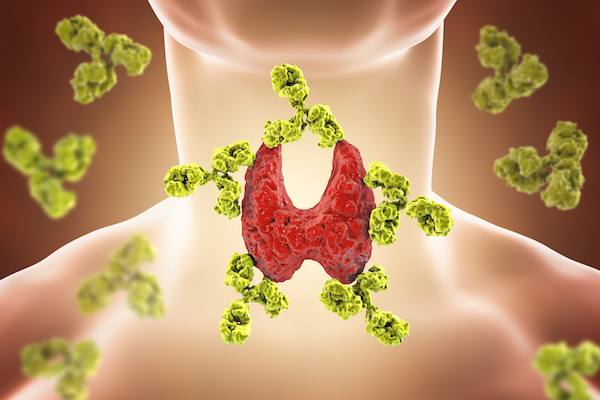Q&A: All Things Thyroid | Surgical Associates of Cleveland

Can you believe it’s January? This month is brings so many wonderful new opportunities—including the chance to help spread awareness of prevention, treatment and cure of thyroid cancer and related diseases.
The Surgical Associates of Cleveland team performs a number of thyroidectomies each year for members in the community, and we’d like to answer some of your top questions about the thyroid.
Let’s take a look.
Question 1: Where is the thyroid located, and what does it do?
Answer: The thyroid is a small, butterfly-shaped gland in the middle of the lower neck. It’s chief responsibility is controlling your metabolism. The thyroid achieves this by secreting hormones that regulate your breathing, heart rate, digestion and body temperature.
Question 2: What is thyroid disease, and what are some of its top causes?
Answer: Thyroid disease occurs when the thyroid produces too much hormone, known as hyperthyroidism, or when it produces too little hormone, called hypothyroidism.
Hyperthyroidism and hypothyroidism can stem from a number of causes, but autoimmune disorders—where the immune system attacks the body’s own cells—are often the cause.
Question 3: What are the symptoms of thyroid disease?
Answer: Symptoms of thyroid disease vary, depending on the type and progression of the disease. Thyroid disease is known for being difficult to diagnose. Because the symptoms tend to come on slowly and are non-specific, they often go unnoticed. (In fact, 60 percent of Americans living with a thyroid disease are unaware of their condition!)
Question 4: How many people are living with a thyroid condition?
Answer: The American Thyroid Association (ATA) estimates that approximately 20 million Americans are living with some form of thyroid disease, and more than 12 percent will develop a thyroid condition at some point in their life.
Question 5: What are some other thyroid-related conditions?
Answer: Other thyroid problems include: * thyroid nodules: common growths of thyroid tissue or fluid-filled cysts; * cancer; and * thyroiditis: swelling of the thryoid; * and goiters, enlargements of the thyroid gland.
Question 6: How can I find out whether I have a thyroid problem?
Answer: Blood tests are often the first step in diagnosing hyperthyroidism and hypothyroidism, as well as thyroid cancer. Talk with your doctor if you have concerns about your thyroid—he or she can help guide you in the right direction for proper diagnosis and treatment.
Question 7: Are certain people more likely to be affected by thyroid issues?
Risk factors for thyroid problems include: * being female; * having a family history of thyroid disorders; and * being over age 60.
Question 8: What can I do to prevent thyroid cancer or related diseases?
Answer: Three ways to reduce your risk of thyroid cancer and related diseases include: * eating a healthy diet rich in vegetables and fruits; * maintaining a healthy weight; and * doing a “neck check” periodically
Want to learn more? Check out these fast facts about the thyroid.
The Surgical Associates of Cleveland is here to counsel you on a number of health conditions and surgical treatments. To learn more about our services, call us at (423) 472-5423 or visit our website.
